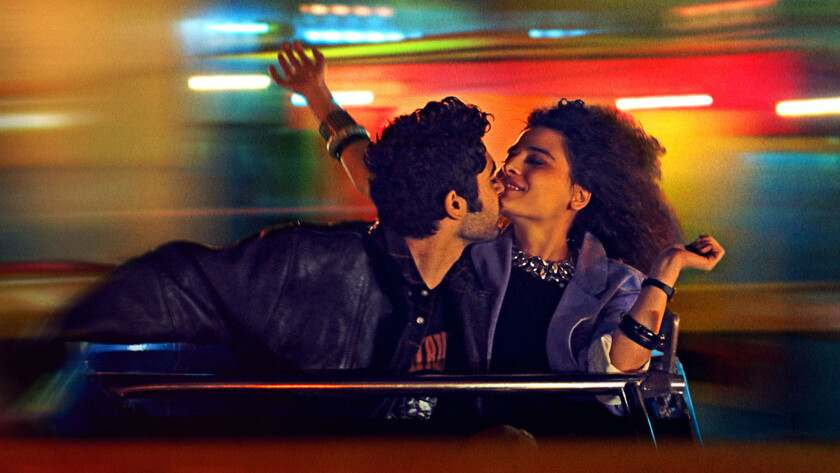Anna Ainio reviews a self-aware film about memory and medium.
Before they presented Memory Box at the 2021 Berlin Film Festival, I already knew the Lebanese duo Joana Hadjithomas and Khalil Joreige as artists, or, better said, image archaeologists. After winning the Marcel Duchamp Prize for contemporary art in 2017, they continued to work on themes of intersection between personal and national identities and how physical traces of memories can become evidence of pressing geopolitical issues. I was excited to see their film featured in the competition of the 2021 Berlin Film Festival.
Memory Box is quite a literal title. The film is indeed about a box of memories (old diaries, photos, tapes) which belongs to Maia (Rim Turiki) and has been sent to her by an old friend. Alex, Maia’s daughter (Manal Issa), is a young teenager living in Montreal. Although Maia forbids Alex to look inside the box, the girl does it regardless and begins a voyage that will take her back in time through her mother’s memories. Alex and Maia live in Montréal, but Maia (like the directors) is originally from Beirut, where she grew up during the Lebanese Civil War. Maia was obsessed with recording every aspect of her life. Writings, collages, and recordings make up the pieces of the puzzle that Alex recomposes while going through her mother’s box. Buried in that box are the joys, sorrows, fears of a teenage girl. “She looks like me,” Alex writes to her friends, though her relationship with her mother is non-existent in real life: the two rarely talk, and Alex feels like they don’t share anything. But when Maia finds out that her daughter has looked in the box, something unexpectedly changes. Mother and daughter start getting closer, and Maia progressively reveals her own story. This voyage in the past culminates with a real one, as Alex and Maia finally head to Beirut.

Beautifully tied within the main storyline, Maia’s past is superimposed unto Alex’s present. She gossips with her friends, meets Raja, her first love, and dances to Blondie’s music. After all, it’s the eighties, and Maia is a beautiful, energetic young girl. All of this is shown through diary pages and sequences of photographs that progressively become film-like. Then the war comes. While Raja and Maia kiss in a car, the background shows Beirut on fire; green spots appear on the image as the film starts to burn. It’s the beginning of the war, and bombs will soon wreak havoc on Maia and her family’s lives.
While telling Alex and Maia’s story, the film reflects on its own capacity to function as an object of memory. The directors offer a reflection on the medium of film, on its changeable nature. In its physicality, it deteriorates in time, and, on its own, is very unstable. It needs words, recorded audio messages to come alive and, crucially, an audience. Whereas Maia has a memory box, a tangible collection of memories, Alex records videos on her smartphone and shares pictures with her friends through a highly volatile medium. Memory Box weaves a thread of continuity between two generations and their different memory tools: at its heart, it is a story about the experiences that constitute one’s identity. By sharing her past, Maia rebuilds a relationship with her daughter that brings them closer to one another.
This film is a delicate, intimate recollection of experiences that build upon one another until they become a life-story about love, war, and death. But everything is kept alive by volatile photographs and written words that wait to be discovered. In the end, one is not surprised at finding out that the content of the memory box is made up of the directors’ actual memories. Indeed, this film feels like an actual archaeological excavation in the human soul. The message is so powerful and well-delivered that the question of whether it is real or fictitious loses its importance. Powerful yet delicate, Memory Box is an unexpected surprise in this year’s Berlin festival.




